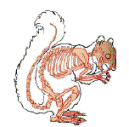
Robert Mitchum in Track of the Cat (dir. William A. Wellman, 1954).

The death bed.

Tab Hunter and Beulah Bondi.

Some "moonin'" by Keats.

Beulah Bondi, Carl Switzer (Alfalfa!), Tab Hunter, and Diana Lynn.
Wellman shot this film using as much black and white as he could. A few colorful objects take on added emphasis as a result: a red coat, a roaring fire, a bottle of whiskey. He manages to make the wide open Northern California wilderness look like a small, crowded cemetery (it helps that much of the action is shot on an obvious set). Mitchum plays an elemental jerk, a cynical bullying brother whose lack of empathy and imagination makes him oddly sympathetic, or at least reliable, like winter cold itself. Everyone is brimming over with resentment and contempt, certainly Beulah Bondi as the bitter and twisted matriarch, and Teresa Russell as the disillusioned spinster sister, but even fresh-faced Tab Hunter and Diana Lynn, the young lovers who have to get out somehow from under the tyranny of family dysfunction. Philip Tonge plays the father as comic relief, but it's grim relief: his drunkenness and smarmy lechery are a kind of grotesque affront to human dignity. Carl Switzer's corpse-like Joe Sam, the hundred-year-old Indian lackey, is so thoroughly defeated by life he can barely stand up. He seems fashioned after Beckett's Lucky in Waiting for Godot. William Hopper as brother Art is the only well-adjusted figure among all the anxiety and dread. Early in the film, when he's alone in the wilderness, he watches a young deer bounding through the snow, and his face lights up like an ecstatic mystic ... right before he gets killed by a panther. From then on it's up to everyone else to try to restore the balance that is lost at his death. They don't do a very good job. By the time it's all over (though there isn't really a true ending), the welcoming fires of home look like flames awaiting tired moths.







